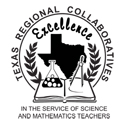January 26-30, 2015
8:00 AM – 4:00 PM
Location
-
Norris Conference Center
- 2525 Anderson Lane
- Suite 325
- Austin, TX 78757
- 512-451-5011
- Get Directions
Eligible Attendees
Initial registration is limited to one participant from each TRC Science Collaborative. The individual attending the PDA should plan to be the primary presenter for a five-day turnaround training that is both pedagogy and content intense. If your attendee is not qualified in both roles, please consider recruiting an additional individual after the PDA to meet the content expertise requirements for the turnaround training. Total number of participants is limited to 40. Please email Mary Hobbs at [email protected] to be placed on the waiting list before registering more than one individual.
Description
WestEd will lead a 5-day Making Sense of SCIENCE (MSS) facilitation academy to prepare participants to effectively lead a MSS course in Genes and Traits for high school teachers in their regions. Facilitation academy participants will:
- Experience the Genes and Traits course firsthand, make sense of vexing science concepts, explore the practice of teaching, and consider how to support students’ literacy needs in science
- Collaboratively investigate the art of facilitation, including strategies for promoting evidence-based conversations among teachers and strategies for supporting teachers’ analysis of student work and use of formative assessments
- Learn core principles of effective facilitation in science, practice facilitation, and receive one-on-one coaching
The Making Sense of SCIENCE approach develops teachers’ content knowledge, instructional skill and expertise through inquiry-based science learning, collaborative discussion, and a focus on literacy in science. The materials were developed by WestEd with support from the National Science Foundation (NSF) and the Institute of Education Sciences (IES), and published in partnership with the National Science Teachers Association (NSTA). Rigorous studies and national field-testing have gone hand-in-hand with the evolution of the Understanding Science for Teaching model of professional development and the MSS courses that embody that model. Evidence from a series of randomized controlled studies have shown that this approach to professional development strengthens teachers’ content knowledge, transforms classroom practices, and boosts student achievement — especially for low-achieving students, English learners, and students with poor literacy skills. As a result, MSS courses can help close student achievement gaps.
TEKS Alignment
An analysis of the MSS: Genes & Traits course for teacher learning finds excellent alignment with the following: TEKS Grade 7: 4E, 10B–C, 11A–C, 14A–C; TEKS Grade 8: 11C; and high school Biology TEKS 4B, 5A, 5C, 6A-G, and 9D.
Agenda
Schedule Overview
Day 1: Traits
There are many ways to define what a trait is and many ways to categorize traits. This session takes a systems approach — traits can be thought of as being properties of biological systems. A single-celled organism and a multicellular organism are both biological systems with traits, as are the subsystems of multicellular organisms (e.g., circulatory systems, nervous systems) and the individual cells of multicellular organisms. Many traits are directly or indirectly a result of the proteins the system synthesizes, and which proteins a system synthesizes are a result of interactions between its genetics and its environment.
Day 2: Gene Expression
The process of gene expression includes multiple steps — the synthesis of RNA from DNA, the post-transcriptional modification of RNA, the synthesis of amino acid chains from mRNA, and the post-translational modification of amino acid chains to form proteins. Throughout the process, cells have a multitude of regulatory mechanisms that start, stop, increase, and decrease gene expression. Some of these gene regulation mechanisms act on a cellular level, while other act on individual genes. This session allows teachers to investigate these processes using a variety of models.
Day 3: Cellular Reproduction
Most cells, be they single-celled organisms or cells within a multicellular organism, can reproduce more of their own kind. This session explores how cells make more of their own kind, including DNA replication and cell division, why the traits of an offspring cell are so similar to its parent cell’s traits, and how a cell can pass on an exact copy of its DNA and still lead to differentiated cell types.
Day 4: Sexual Reproduction
During sexual reproduction, cells don’t make more of their own kind. Instead, they make specialized gamete cells. These gametes have half the DNA of the parent cell. In this session, teachers investigate the process of sexual reproduction and the impacts on the traits of offspring.
Day 5: Frequency Of Traits
Traits are properties of individuals, but there are many individuals within the same species. In this session, teachers analyze data about the frequency with which traits appear within a species, and explore the possible reason why the frequency of traits of a population can change over time.
Certificates of Participation
Certificates stating 40 hours of Continuing Professional Education hours (CPE credits) earned will be sent electronically after the participant has completed the online course evaluation. Participants should receive the certificate two to three weeks after the PDA. Any questions about certificates should be directed toward the contact person listed on this page.
Contact
- Mary Hobbs, Ph.D.
- Coordinator for Science Initiatives
- 512.471.8729
- [email protected]
Accommodations
No hotel block arrangements have been made by the TRC for this event. Make reservations at an area hotel of your choice, asking for state rate. See a list of nearby hotels linked below.
The TRC will reimburse you for your transportation costs following the event.
- Austin Hotel List Provided by the Norris Conference Center
- Texas Hotel Occupancy Tax Exemption Certificate (PDF)
Parking
Parking is free and abundant at the Norris Conference Center.
Registration
- Cost:
$50.00 per day for each participant.
$250.00 total per participant for this 5-day workshop. - Registration fees cover breakfast, lunch and training materials.
- Payments are due before this event.
- Refunds will not be issued for cancellations or those not in attendance.
- Event limited to 40 participants
Registration Payment
- Participants can pay by credit card or check. The registration confirmation email will contain all necessary information to provide to business offices for credit card payment records and check processing instructions.
- Checks for registration need to be made out to “The University of Texas at Austin.” Please send to the attention of Jeff Early along with the printed registration confirmation email.
- Transportation expenses will be reimbursed. Reimbursement forms will be provided electronically after the event. All participants are responsible for their own lodging reservations and payments.
Registration Instructions:
Click the registration button below to register your attendance. You will be asked your name, email, and collaborative. If you are not the project director, you will need to enter your project director’s email as well. If you have multiple people attending, please fill out this form for each person that will be attending. You may need to quit and restart your browser to enter multiple people. If you need technical help with the registration page, send an email to the: TRC Web Team.
Click to Register







